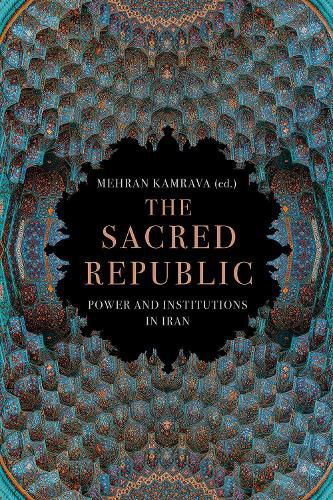Readings Newsletter
Become a Readings Member to make your shopping experience even easier.
Sign in or sign up for free!
You’re not far away from qualifying for FREE standard shipping within Australia
You’ve qualified for FREE standard shipping within Australia
The cart is loading…






This book presents a comprehensive, detailed analysis of the establishment, evolution and current significance of different institutions in today's Islamic Republic of Iran. The volume draws on the insights of a number of Iran experts to examine their establishment, functions and evolution, as a means of understanding Iranian politics and society. The Sacred Republic's specific focus is on the key formal institutions of the state through which the Islamic Republic exercises power, namely the velayat-e faqih: the judiciary, the presidency, the parliament, elections, the Revolutionary Guards, and the foreign policy establishment. Despite significant work on Iranian politics in recent decades, few studies have focused on state institutions, their resilience, or the reasons for and manner of institutional change. Through historical institutionalism and comparative historical analysis, the contributors to this book together fill a glaring gap in the study of Iran's political institutions, offering significant insights for the theoretical literature on comparative politics, Middle Eastern politics, and Iranian Studies.
$9.00 standard shipping within Australia
FREE standard shipping within Australia for orders over $100.00
Express & International shipping calculated at checkout
This book presents a comprehensive, detailed analysis of the establishment, evolution and current significance of different institutions in today's Islamic Republic of Iran. The volume draws on the insights of a number of Iran experts to examine their establishment, functions and evolution, as a means of understanding Iranian politics and society. The Sacred Republic's specific focus is on the key formal institutions of the state through which the Islamic Republic exercises power, namely the velayat-e faqih: the judiciary, the presidency, the parliament, elections, the Revolutionary Guards, and the foreign policy establishment. Despite significant work on Iranian politics in recent decades, few studies have focused on state institutions, their resilience, or the reasons for and manner of institutional change. Through historical institutionalism and comparative historical analysis, the contributors to this book together fill a glaring gap in the study of Iran's political institutions, offering significant insights for the theoretical literature on comparative politics, Middle Eastern politics, and Iranian Studies.